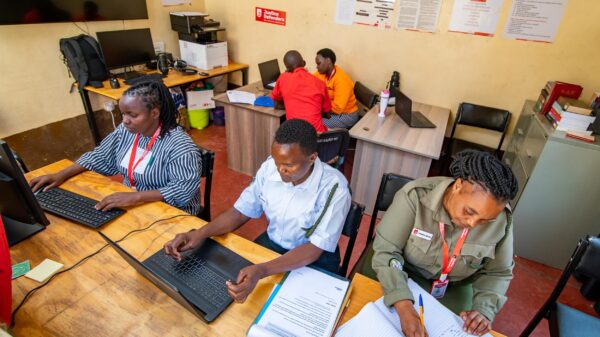The first comprehensive study of charitable giving in three major countries in eastern Africa reveals that the emerging middle-classes are giving away roughly a quarter of their earnings each month to help others.
Compared with giving levels detailed in the Charities Aid Foundation’s (CAF) World Giving Index, these astonishing levels of generosity outstrip those of developed nations around the world.
The study found that in Kenya, the growing middle classes are giving away 22% of their monthly income, a figure that rose to 24% in Tanzania and 31% in Uganda.
CAF Head of Research, Susan Pinkney, said of the findings “While the cultural traditions of giving to family, friends, and neighbors were well known, we are humbled by the extent of that generosity and the fact that most people do not even regard it as charitable giving – it is just a part of everyday life.”
Much of this grassroots philanthropy comes through informal gifts and support to family, friends and community members, with only 2% of those surveyed in Kenya, 3% in Tanzania, and 0% in Uganda saying they had not given to any group or individuals in the last 12 months.
The study from CAF in partnership with the Aga Khan Foundation, the CS Mott Foundation, and the U.K National Lottery Community Fund looked at giving trends in the three countries in order to gain a stronger understanding of the extent and nature of giving in fast-growing parts of the world.
Previous research by CAF examined the potential for charitable giving that lies with the estimated 2.4 billion people set to join the world’s middle classes and found that if they were to give just over 0.5% of their spending, as much as $319 billion could be raised to not only support charities but to help countries strengthen the local organizations that speak up on behalf of society’s most vulnerable.
The research also looked at what factors may prevent people both giving to charities that deliver assistance such as health and education programs and to organizations that fight for social justice, human rights and legal protections.
The recently launched report pointed out several key considerations:
1. There is a deep-rooted belief in the importance of ‘paying it forward’ – when someone received help in life, their instinct is to do similar for others. The cultural tradition of Harambee (‘all pull together’ in Swahili) underpins this philanthropy – one-to-one giving or assistance within communities borne of a sense of togetherness.
2. Cash payments remain the most popular way to give, but mobile payment services are also widely used
The members of the middle class in each country overwhelmingly stated that their charitable giving, while generous, did not lead them to incur hardships – signaling that there is room to give more (93% in Kenya and Uganda and 91% in Tanzania said that their giving habits do not make it difficult to make ends meet).
3. Around half of the survey respondents in Uganda (54%) and Kenya (48%) had supported a faith-based organization, the main type of formal charity or organization supported in these two countries. In Tanzania however, people are far more likely to have supported a community-based organization (50%).
Among those who have supported a formal charity or organization in the past 12 months, the most common cause was children and young people, with 73% of those surveyed in Kenya, 60% in Tanzania, and 78% in Uganda supporting this; this was followed by helping the poor or hungry in all three countries (50% in Kenya, 54% in Tanzania, and 62% in Uganda).
4. Established charities and key voices in public debates, such as workers’ rights advocates, need to increase their public profile and be more transparent in their work if they are to overcome a lack of trust and attract more donations (44% of people said knowing more about the organization would make them likely to give more money and 41% said more transparency in the sector would boost their giving habits.)
Even where tax incentives to charitable giving are in place, most people do not know about them (81% in Kenya, 53% in Tanzania, and 69% in Uganda) or are unlikely to take advantage of them (94% of participants in Kenya, 91% in Tanzania, and 95% of participants in Uganda).
As reported on The Sauce last year, Charity Aid Foundation released the annual world giving index, and Kenyans ranked well amongst the most generous nations of the world ranking at 11th place.







































